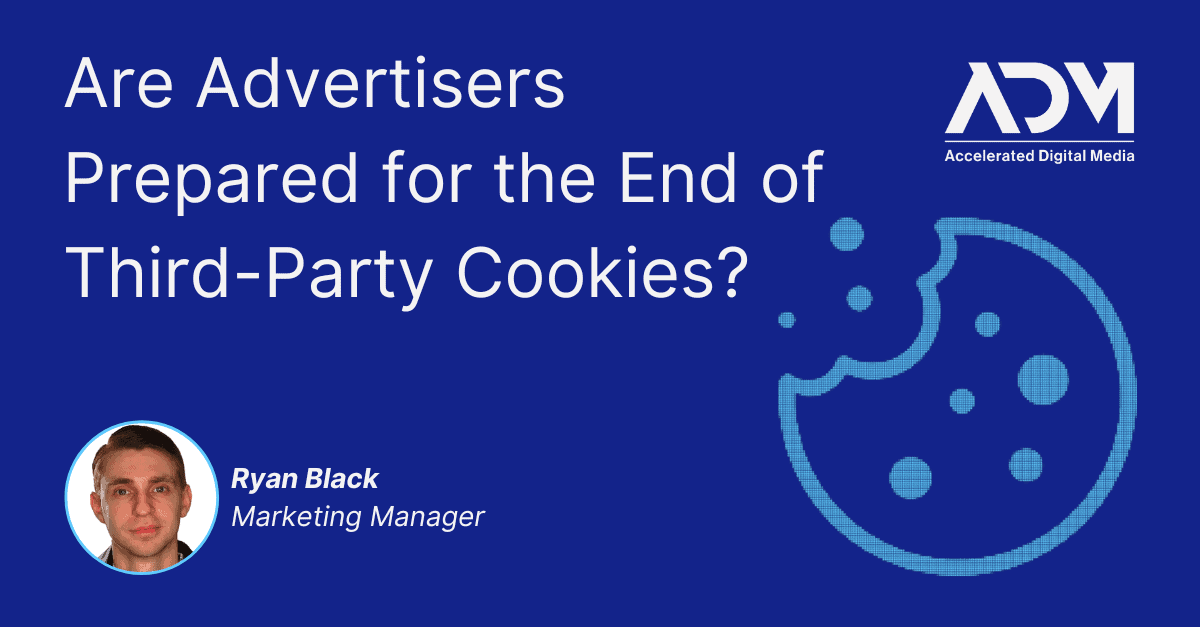The fall of the third-party cookie has been a long time coming. For years, privacy advocates have clamored for their demise. One by one, most tech companies have obliged: the majority of well-known web browsers, like Apple’s Safari or Mozilla’s Firefox, now block third-party cookies by default. But third-party cookies have continued to live on because the biggest tech firm of them all hadn’t followed suit—until now.
Google’s Chrome browser commands about 65% of the web browser market share, meaning it has been the de facto force keeping these cookies alive. For years, it has slow-played its move away from them: Plans were first announced in 2021, and now 3 years later it will begin a very slow process to kill them off once and for all. In 2024, Google will formally begin phasing out third-party cookies, starting with just 1% of Chrome users in Q1.
But even with years of forewarning and millions of people already using browsers free of third-party cookies, many advertisers seem under-informed and ill-prepared for this sea change. In this blog, we’ll talk about the changes on the horizon, the implications for marketers, and the challenges, opportunities, and unanswered questions presented by a world without third-party cookies.
What is the current state of cookies?
Currently, third-party cookies are still alive and well in Chrome—but Google did recently limit their longevity, forcing them to expire after 400 days in your browser. That means a site will still remember your data if you visit it roughly once a year. That change was Google’s very, very soft entry into cookie deprecation.
In ADM’s experience, many advertisers have continued to overlook the impact of third-party cookie deprecation on the platforms that have already done it. That means some of their campaigns are unintentionally favoring Chrome users and neglecting the 35% of people who rely on Safari, Firefox, and other browsers. That can’t be the case anymore.
The iOS updates from a few years ago already changed many digital marketing approaches. Because the vast majority of social users do their browsing in specific apps, cutting off Instagram and Facebook’s ability to access user data across the Apple ecosystem fundamentally diminished targeting specificity from those social platforms. Between that and the long lead time since Google’s first announcement about third-party cookies, the digital marketing sphere has some infrastructure in place for this change—but many companies remain unprepared.
What impact will a lack of third-party cookies have on marketing?
Google’s third-party cookie deprecation will undoubtedly change digital marketing, because so many users still rely on Chrome. Cookie-based strategies have, frankly, been effective for many brands, so advertisers must now take different approaches to tailoring their campaigns to user behavior. Here are three main changes we expect to see:
- Marketers must adapt their tactics to an entirely new set of key performance indicators (KPIs). The focus of goals and measurements will shift towards probabilistic results (modeled conversions) rather than deterministic ones (conversions that are tracked by cookies).
- Cookieless solutions—ranging from contextual programmatic advertising to more advanced tech implementations—will become vastly more valuable.
- Digital success will increasingly hinge on the legal, compliant collection and utilization of their own first-party customer data.
That last point is arguably the most important of all. “The number one thing to do is to find a way to start collecting first-party data,” ADM’s Director of Data and Analytics, Isaac Uloko, says. “The more data you have, the richer you are.”
Will cookie deprecation impact first-party cookies?
Google’s change specifically relates to third-party cookies. This change won’t impact how websites utilize first-party cookies—to do things like remember form field items or items in a shopping cart. But it will prevent companies from tracking users across multiple domains using third-party cookies. third-party cookies are going away, but first-party is here to stay.
That’s best done by transitioning from third-party to first-party cookies. First-party cookies track users only within the domain they are currently visiting and predominantly retain that information solely for use within that domain. This is why first-party cookies are seen as less intrusive than third-party cookies, and why first-party data continues to be so important.
If you’ve noticed an uptick in websites either delivering an opt-in cookie notice or asking you to provide an email address or create a login, this is why. The onus is now on individual companies to gather their own data if they’re looking to track customer behavior on-site. While larger businesses might have the team and infrastructure to put these methods in place, not everyone is ahead of the curve.
“Google isn’t going to suffer from this, or Amazon or Facebook. You already have an account and they are getting your first-party information,” Uloko says. “Smaller ones, the best bet is to start trying to collect that first-party data now.”
The future of Google and cookies: 2024 and beyond
After removing third-party cookies for 1% of Chrome users in Q1 2024, Google plans to have them entirely removed by the start of Q4—meaning the true death of the third-party cookie won’t be here until closer to the end of the year.
In their place, Google has been developing and deploying what it calls its Privacy Sandbox. This is an opt-out based system that many users probably accepted without a second thought after a Chrome update in summer 2023. It collects first-party data from users which is sent into a series of isolated APIs with different uses: privacy, attribution, topics (for interests and marketing), and more.
But the efficacy of Google’s efforts may be unclear, particularly because, while not every user browses with Chrome, most users in other browsers still interact with Google products like GMail, YouTube, and Google Search itself. Both Webkit (Apple) and Mozilla (Firefox) have expressed no intention to support certain Privacy Sandbox APIs, like the Topics API. If Google is unable to establish their new APIs as industry standards soon, the online advertising ecosystem could fragment, complicating marketing efforts overall.
There’s plenty of murkiness to go around when discussing the end of third-party cookies—let alone a much more distant future where first-party cookies could go away, too. The best advice? Stay focused on this space and work closely with your marketing team to ensure you’re anticipating change, rather than reacting to it.
“I don’t think the industry is ready for the actual transition,” Uloko warns. “If you’re not prepared, you’re done. And not everyone is prepared.”




